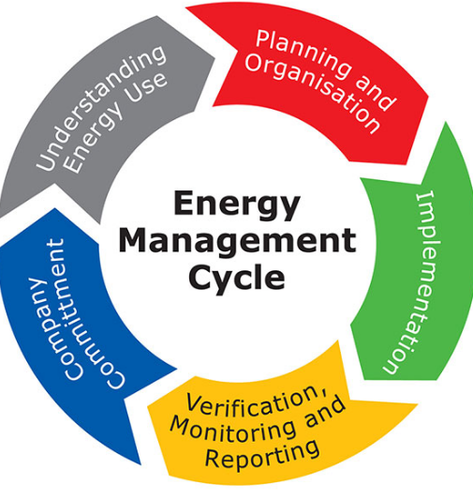
Internet of Things (IoT) is the network of physical objects or “things” embedded with electronics, software, sensors, and network connectivity, which enables these objects to collect and exchange data. IoT allows objects to be sensed and controlled remotely across existing network infrastructure, creating opportunities for more direct integration between the physical world and computer-based systems, and resulting in improved efficiency, accuracy, and economic benefits. It helps to bridge the gap between the virtual and physical world.
Energy is one of the crucial resources for any business. Rising energy costs, increasing demand, volatile energy markets, and strict enforcement of government policies are some of the propelling factors that have led many organizations to find smart ways for monitoring, controlling, and saving energy. Monitoring energy usage across your whole organization is a daunting task and often ends up in silos of data. In today’s connected world, the future of energy utilization will be inexorably linked to Internet of Things (IoT). The need of the hour is an intelligent Energy Management System (EMS) that can contribute towards cutting the costs, improving efficiency, and meeting your energy demands.
In the current digital revolution, any property equipped with smart digital solutions should be able to easily exchange data through various channels or services. In reality, the proprietary software and hardware are lacking in their ability to communicate or operate with various devices outside the built ecosystem. While digital solutions have brought significant improvements in terms of energy efficiency, cross-functional integration is still difficult to achieve. As a consequence, this strategy not only generates higher costs but also confusion among regular users.
Fortunately, with advances in energy management systems (EMS) and controls technologies, retailers now have the ability to automate energy best practices. These tools not only provide full building ecosystem optimization but also help operators capitalize on the potential for energy savings via utility energy incentives and available demand management opportunities.
Several IoT based energy meter monitoring devices are used to overcome the shortcomings of conventional energy monitoring devices. A smart, efficient and reliable energy monitoring and management device (system) should be capable of:
– Monitoring and measuring both individual and collective consumption rate.
– Ability to save consumption history for further analysis
– Use of renewable energy sources.
– Replacement of some energy sources.
– Analysis of the energy saving of the actions carried out.
– Thermal isolation.
– Waste management.
– Analysis of the environmental atmosphere.
– Study of original techniques to produce and save energy.
– Economic analysis of management.
Therefore, Energy management includes the development and operation of energy production and energy consumption units and energy distribution and storage
